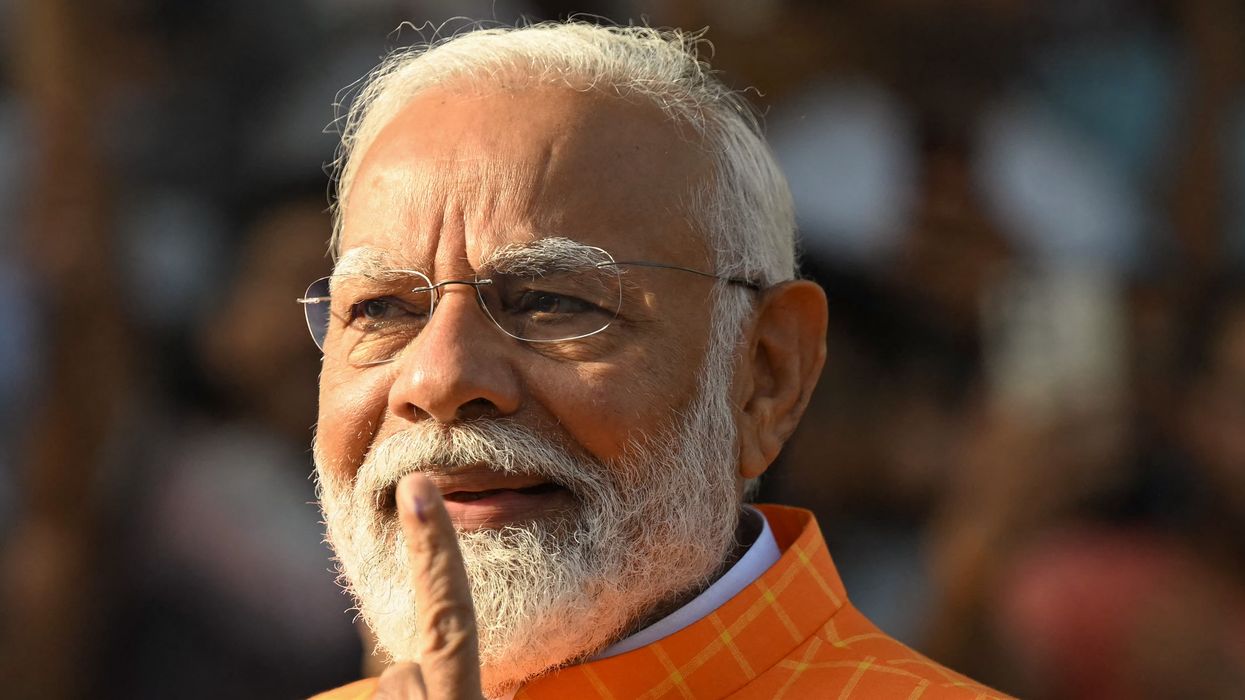IRRESPECTIVE of whether one supports Narendra Modi’s brand of politics or not, there is no doubt India’s prime minister is a remarkable man.
Much of what has been happening in the country over the past decade has been because of him.
He turns 75 on September 17, 2025, in a country where the retirement age for most people in the public sector is around the 60 mark.
Opposition politicians are trying to cause a great deal of mischief by increasingly posing the question: “After Modi who?” This is intended to encourage a falling out between possible successors, of whom there are many, though the names mentioned most frequently are those of the central home minister, Amit Shah, and the chief minister of Uttar Pradesh, Yogi Adityanath.
Once upon a time in India, people used to ask, “After Nehru who?”, so dominant was the position of the country’s first prime minister after independence in 1947, Jawaharlal Nehru.
In cricket, which for many in India is the marker of national pride, fans similarly wondered whether there could ever be a replacement for their star batsman, Sunil Gavaskar, who managed to tame the once invincible West Indies and that, too, in the Caribbean.
But he was overtaken by Sachin Tendulkar, the “God of Indian cricket”, who in time gave way to the age of Virat Kohli, now drawing to a close.
So, someone will one day take Modi’s place, though that does not appear to be imminent. But this is not stopping opponents of the prime minister’s ruling Bharatiya Janata Party (BJP) from trying to cause as much trouble as possible.
In the US, Modi’s “friend” Donald Trump has dropped hints, probably not entirely jokingly, that he would like to have a third term, which is not permitted under the American constitution.
Modi is already serving his third term as prime minister, having been first elected in 2014, and re-elected in 2019 and 2024. There is no reason to think he will not complete his third term which ends in 2029.
But what then? Will he stand again in 2029 for a fourth term? And if he doesn’t, who will succeed him? And what sort of India will emerge under a new leader?
This is not just tittle tattle, but an outcome that will shape India – and global politics. So, there is a lot riding on what Modi decides to do and also his health.
He seems to be in fine form, but it has to be taken into account that before becoming prime minister, he served as chief minister of Gujarat from 2001 to 2014. That means he has been at the centre of Indian politics for a quarter of a century.
In India, there is no such limitation on how many times someone can be prime minister, nor any formal retirement age for politicians.
Narendra Damodardas Modi was born on September 17, 1950 to a Gujarati Hindu family in Vadnagar, Mehsana district, Bombay State (present-day Gujarat). He was the third of six children born to Damodardas Mulchand and Hiraben Modi.
Every so often little bits of information are revealed about his lifestyle. It is known that former BJP prime minister Atal Bihari Vajpayee relished his food. When Tony Blair, then the Labour prime minister, invited Vajpayee to a “working lunch” at Chequers, the Indian prime minister politely declined and said he didn’t want to inconvenience his British counterpart. He didn’t like bland English food.
Instead, Vajpayee, who was staying at the St James Court Hotel in Buckingham Gate, ordered “room service” from the adjacent Quilon restaurant. Vajpayee went through the menu and “the plates came back empty”, Eastern Eye learnt.
“Why can’t you cook like this?” Vajpayee asked the chefs who had come with him on the prime ministerial plane from India.
In marked contrast, Modi’s diet is “simple but nourishing, with a daily routine that includes ginger tea and a light breakfast of boiled or roasted foods. Though he enjoys snacking between meals, he is a modest eater, favouring dishes like khichdi, kadhi, upma and khakra which are all prepared by his personal cook. His approach to fitness and nutrition reflects a balance between traditional practices and a disciplined lifestyle.”
“Despite a demanding schedule that starts at 4am and often stretches until midnight, Modi prioritises his health,” reveals another piece of intelligence. “According to Sudesh Verma, author of Narendra Modi the Gamechanger, the PM’s mornings – when he was the Gujarat chief minister in Gandhinagar – began with a walk, a habit he continues till today before diving into his busy day. However, it’s his commitment to yoga, surya namaskar (sun worship), and meditation that keeps him energised and focused.”
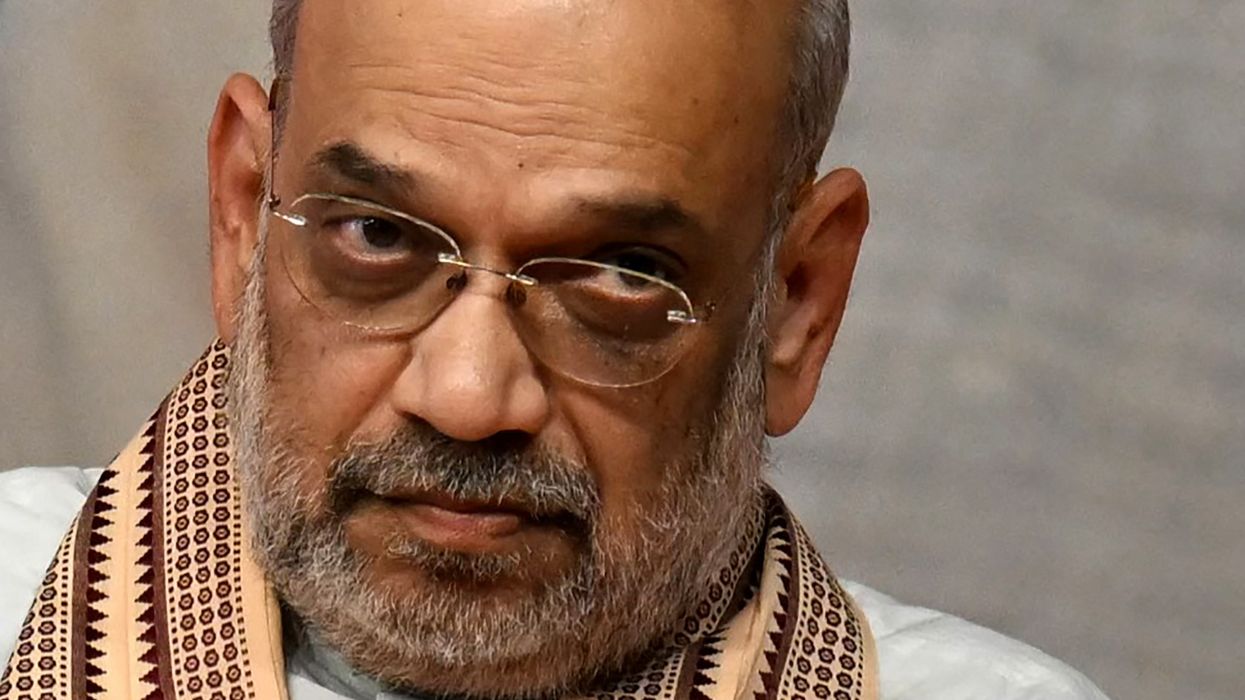
Indians have been told that “despite juggling the immense responsibility of leading a nation, Modi still maintains a vibrant appearance and finds time for meditation. In a 40-minute meeting with the prime minister, social media influencer Ankit Baiyanpuria, known for launching the 75-day fitness challenge to inspire youth, shared insights into the Indian leader’s routine. ‘The prime minister told me that he can’t eat on time and has a problem regarding sleep. Then I told him that if the countrymen have to sleep comfortably, then someone will have to work. ‘Aur aap toh raja ho desh ke (after all you are the king of the country),’ he said.”
The truth probably is that Modi has little time to sleep and catches a bite when he can.
Junior minister for parliamentary affairs and other portfolios, L Murugan, said Modi had discussed his daily routine with him, that “he sleeps for just 3.5 hours a night and refrains from eating after 6 pm. ‘Everyone was surprised and happy at the same time. Modi talked about his daily routine, his exercise, and his foreign trips. We learnt so many inspiring things from him.’”
When Modi spoke about the need to tackle obesity, a growing problem in middle class India, the Bollywood star Akshay Kumar gushed: “How true! I’ve been saying this for years now…love it that the PM himself has put it so aptly. Health hai toh sab kuchh hai (you have everything if you have good health). Obesity se fight karne ke sabse bade hathiyaar (this is the biggest weapon against obesity). 1. Enough sleep. 2. fresh air and sunlight 3. No processed food, less oil. Trust the good old desi ghee (a dubious suggestion from the actor which is best ignored).
And most important…Move, move, move. Kuchh bhi type ka workout karo par karo toh sahi (any kind of workout is good). Regular exercise will change your life. Trust me on this and get moving.”
In a 2015 edition of Mann ki Baat (straight from the heart), with former US president Barack Obama, Modi said American polymath Benjamin Franklin’s biography had inspired him from a young age, teaching him valuable lessons on reducing excessive sleep, controlling diet, and managing work pressures – all critical elements of maintaining a healthy and balanced life despite the demands of leadership.
Getting Indians to change their eating habits is a difficult task. Fast food and digital India are going hand in hand. People can tuck into a delicious biryani or a rich chocolate cake 10 minutes after placing their order. And Modi has taken a leading role in ushering in the digital revolution.
There is no other way to say it, but millions have become fat on the proceeds of prosperity. The National Family Health Survey (2019-2021) states that in India 24 per cent of women and 23 per cent men are overweight or obese. Modi has urged people to go easy when frying in edible oil.
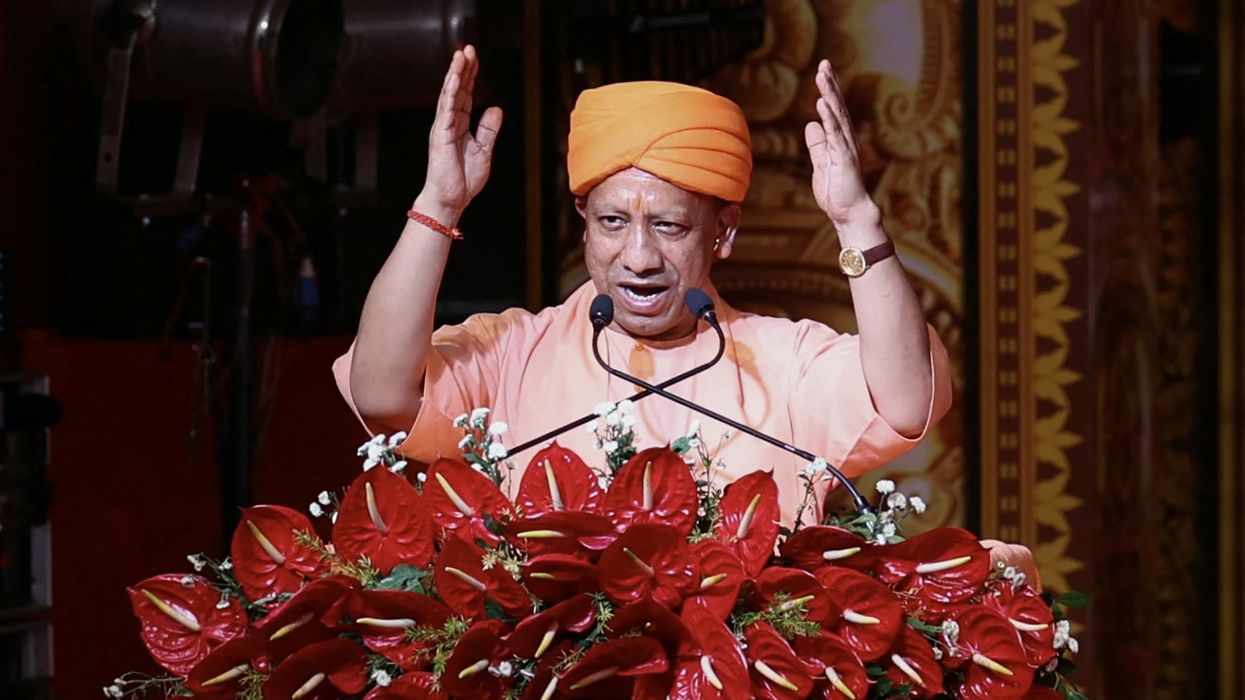
But all this concern about the nation’s health provides the context to whether Modi will be healthy enough to continue as prime minister after 2029.
And will he want to remain prime minister into his eighties?
The answer depends on many factors, but is probably a qualified yes.
There has been fresh speculation because of unhelpful comments made recently by Sanjay Raut, a politician opposed to the BJP.
This provoked Maharashtra chief minister Devendra Fadnavis, to rebut any suggestion that change was on the way: “There is no need to search for his successor. He is our leader and will continue.”
Fadnavis is both a member of the BJP and of the Rashtriya Swayamsevak Sangh (RSS). The latter is not a part of the government, but sits almost above it, giving the BJP its ideological moorings. And Modi was visiting the RSS headquarters in Nagpur for the first time in 11 years. The politics is a little complicated, but Raut – who belongs to the opposition Shiv Sena – claimed that as Modi will turn 75 in September, he had been summoned by the RSS to discuss his successor. Raut pointed out that as a general rule, the BJP did not like ministers clinging on to their jobs if they were in their seventies.
Raut sought to be as mischievous as possible.
“Mr Modi probably went to the RSS headquarters to write his retirement application in September,” declared Raut.
He added: “Modi’s successor will be from Maharashtra... and the RSS will decide on that. From what I understand, the Sangh parivar (the RSS family) wants a change in the country’s leadership. PM Modi’s time is over. They want a change and want to choose the next BJP chief.”
It is not the first time that the question of the succession has been raised. Before the 2024 general election in India, former chief minister of Delhi, Arvind Kejriwal, a social activist and politician best known for being the founder and leader of the Aam Aadmi Party, said those who voted for Modi would get Amit Shah instead. This was because Shah was being groomed to take over from Modi and would do so between 2024 and 2029. The response from Fadnavis has been firm and assertive: “In 2029 we will see Modi as prime minister again.”
He also took a swipe at talk of Modi – whom he called “our father” – being phased out.
There does appear to be a ring of truth in this statement – unless Modi decides in 2029 that the time has come to pass on the torch.
One former newspaper editor, no friend of Modi, floated a wild idea: “Modi will go for the ‘Putin’ solution – he will allow someone to become prime minister and will himself become executive president.”
But this does seem far fetched.
Fadnavis also said: “In our culture, when the father is alive, it is inappropriate to talk about succession.”
He also sneered: “That is Mughal culture. The time has not come to discuss it.” Indians will understand the reference to Mughal princes who happily murdered their brothers in order to get the throne, Aurangzeb being the best example.
Senior RSS leader Suresh ‘Bhaiyyaji’ Joshi, who was also in Nagpur for the RSS conclave with Modi, said he was not aware of any talk of his replacement.
Presently, India’s retirement age of 58- 60 years is the lowest across the globe. In October 2020, the Kerala government passed an order to increase the state retirement age to 60 years. The order came after the Andhra Pradesh government increased its retirement age from 60 to 62 years for its employees. As the retirement age of government employees is not a federal subject, different states can set the level at their discretion.
There are currently 25 high courts in the country; a high court judge in India retires at 62, whereas a supreme court judge retires at 65.
The foreign office in London is probably building up a file on Yogi Adityanath. Born Ajay Mohan Singh Bisht on June 5, 1972, he is an Hindu monk and politician, belonging to the BJP who has been the 21st chief minister of Uttar Pradesh, the most populous state in the country, since 2017.
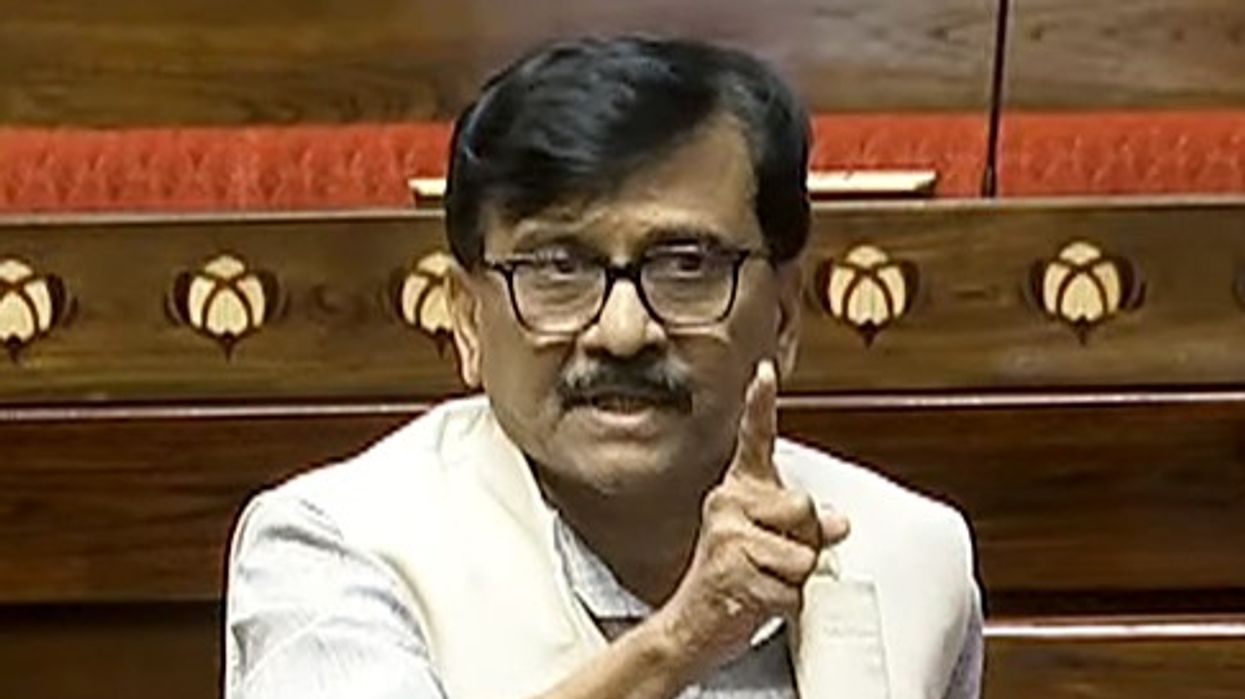
He said recently he doesn’t consider politics his full-time job.
“Look, I am the chief minister of the state, the party has put me here for the people of Uttar Pradesh and politics is not a full-time job for me. At present, we are working here but in reality, I am a yogi,” he said.
Keeping his future political prospects open-ended, he added, “As long as we are here, we are working... there will be a time limit to this too.”
Asked about his reported differences with the BJP high command, Adityanath dismissed the notion outright.
“Where does the question of differences come from? After all, I am sitting here because of the party. Can I continue sitting here if I have differences with the central leaders?
“The second thing is that the distribution of (election) tickets is done by the parliamentary board of the party, and all matters are discussed in the parliamentary board. The matters reach there through proper screening. So, for the sake of speaking, anyone can say anything... one cannot shut someone’s mouth,” he stated.
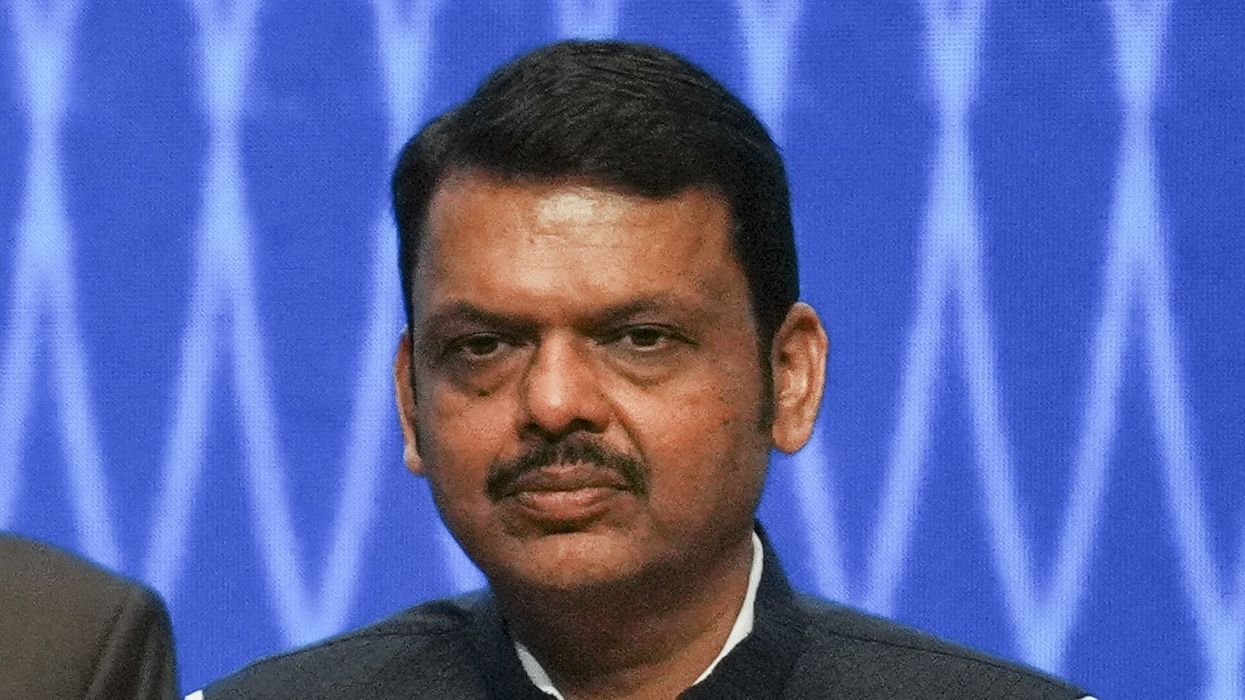
According to newspaper reports, “during his tenure, he has focused on law and order, Hindutva, populist initiatives, and economic development.
His administration has been marked by strict law enforcement measures, including controversial crackdowns on criminals like bulldozing properties of alleged offenders and police encounters.
Additionally, Uttar Pradesh witnessed the grand consecration of the Ram temple in Ayodhya and the Maha Kumbh in Prayagraj, which drew 66 million devotees over six weeks.
“However, the BJP suffered setbacks in the 2024 Lok Sabha elections in Uttar Pradesh, winning only 33 seats – 29 fewer than in 2019. The decline fuelled speculation about internal discontent and a possible rift between Yogi Adityanath and the BJP central leadership.”
For the foreseeable future, Modi appears to be very much in command.
